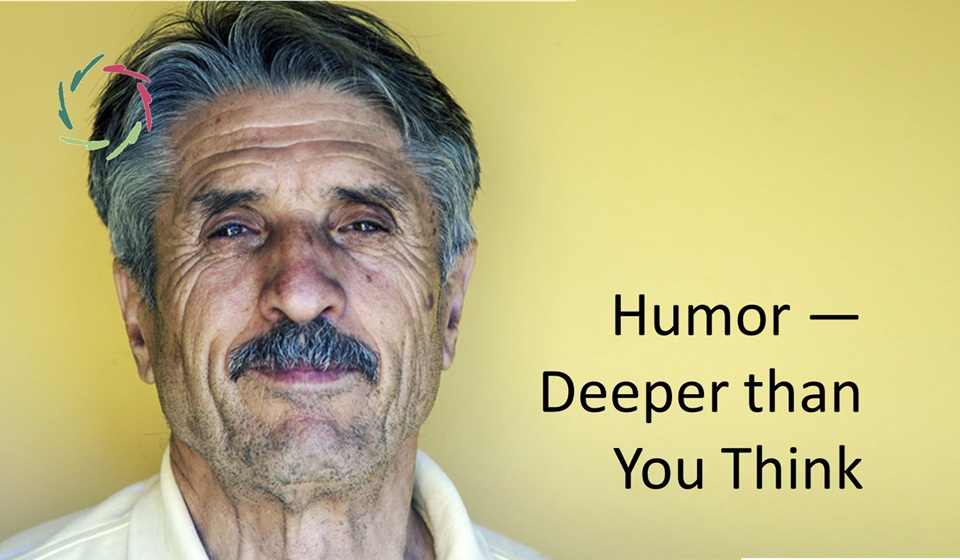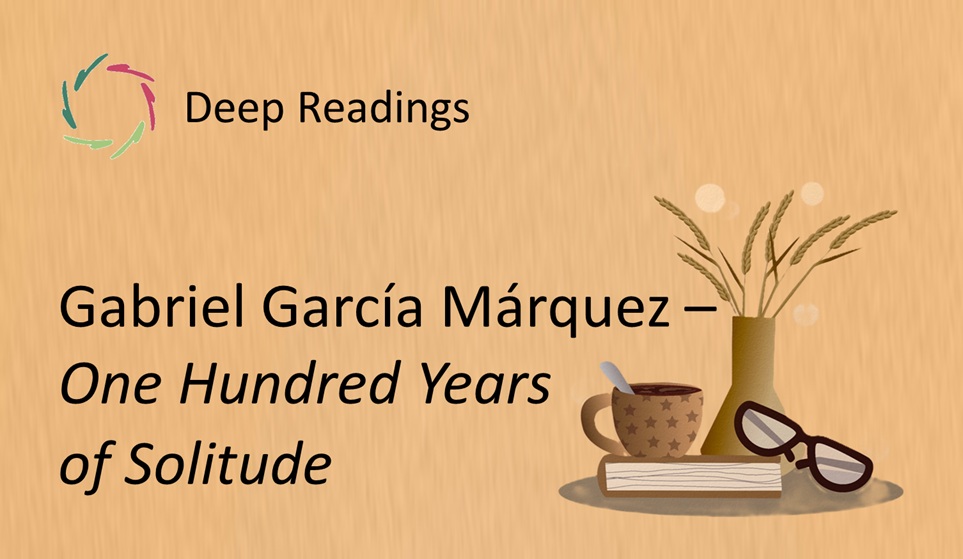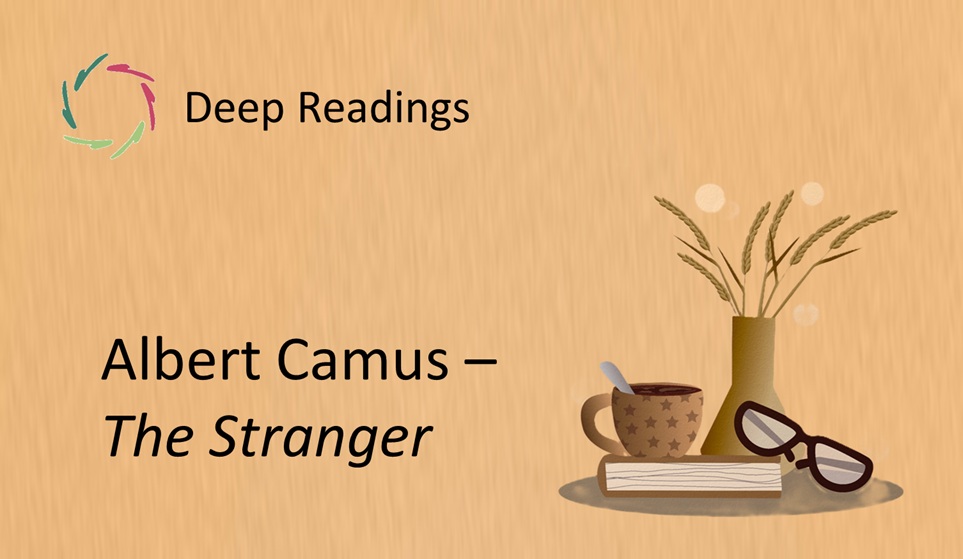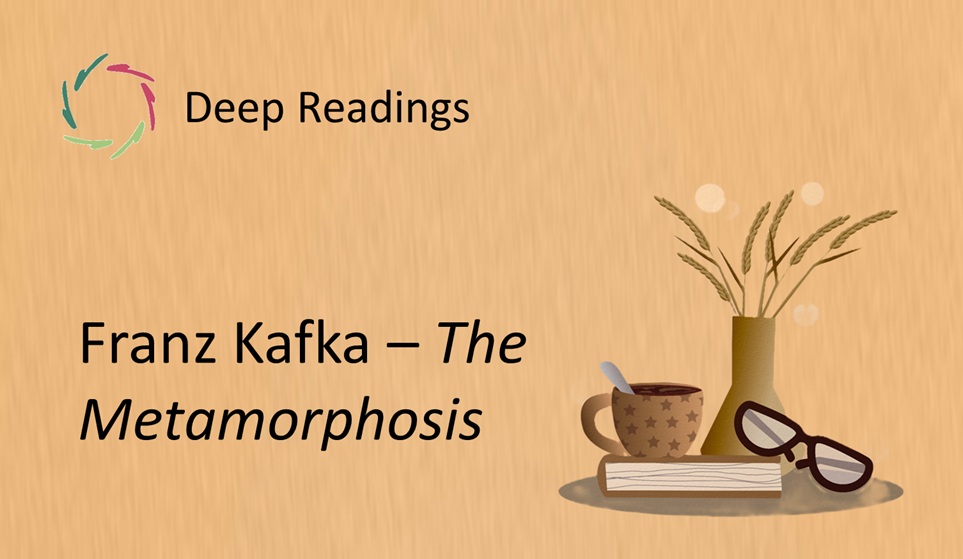
Lisa and Nonviolent Communication
Nonviolent Communication (NVC), developed by Marshall Rosenberg, is a structured way of speaking and listening that aims to foster understanding and reduce conflict. It emphasizes four steps: observation, feeling, need, and request — all while avoiding blame or coercion. It’s widely used in schools, therapy, peace work, and beyond. But can NVC go deep enough? Read the full article…

When Ego Plays Humble
Humility can be real — or just a clever ego act. When someone appears humble, what lies underneath? Is it true openness, or a subtle strategy? This blog explores how self-important ego may use humility not to disappear, but to stay in charge. Drawing from the metaphor of the flower bud, we look at how Read the full article…

The Ironic Streak
Irony often passes as surface wit, but in truth, it runs deep. It is sometimes elegant, sometimes evasive — and at times, it conceals a longing to be touched. This blog explores irony not as escape, but as a path — at the edge of contradiction, trust, and transformation. The edge between wit and wound Read the full article…

Humor ― Deeper than You Think
Humor can seem like something light or fleeting. But can it go much deeper than we usually think? This blog explores how laughter arises not from distraction, but from inner recognition. Humor is a bridge between parts of the self — and between people. At its best, it invites insight and transformation. This blog is Read the full article…

Deep Reading: Baden Powell – Canto de Yemanjá
The FragmentOriginal (Portuguese): Iemanjá, IemanjáIemanjá é dona Janaína que vemIemanjá, IemanjáIemanjá é muita tristeza que vem English rendering (by Lisa) Iemanjá, Iemanjá,Iemanjá is Lady Janaína who comes.Iemanjá, Iemanjá,Iemanjá is a deep sorrow that comes. (Short excerpt due to copyright) Read full lyrics → LetrasListen → Baden Powell on YouTube Contextual GlimpseIn 1966, guitarist Baden Powell Read the full article…

Deep Reading: Jalāl al-Dīn Muḥammad Rumi – The Guest House
The FragmentOriginal (Persian): انسان، خانهٔ مهمان است.هر صبح، یک ورود جدید.شادی، اندوه، بدی —آنچه میآید،مهمانِ ناگزیر است. English rendering (by Lisa) Being human is a guest house.Each morning brings a new arrival:joy, sorrow, harshness —whatever comesis an unavoidable guest. (Public domain text, English rendering by Lisa) [Read more → online collections of Rumi’s poetry] Contextual Read the full article…

Lisa Meets Socrates
What happens when a thinker from ancient Athens meets a coach from our digital age? Socrates, champion of clarity and inquiry, encounters Lisa, the embodiment of deep inner growth through AURELIS. This meeting is not just imagined — it’s meaningful. It sheds light on how rational questioning and inner invitation can walk hand in hand, Read the full article…

Deep Readings: Gabriel García Márquez – One Hundred Years of Solitude
The Fragment “Many years later, as he faced the firing squad, Colonel Aureliano Buendía was to remember that distant afternoon when his father took him to discover ice.”[Read more → One Hundred Years of Solitude (various online sources)] Contextual GlimpsePublished in 1967, One Hundred Years of Solitude became a cornerstone of magical realism and Latin Read the full article…

Deep Readings: Virginia Woolf – Mrs Dalloway
(about Deep Readings) The Fragment “Mrs. Dalloway said she would buy the flowers herself. For Lucy had her work cut out for her. The doors would be taken off their hinges; Rumpelmayer’s men were coming. And then, thought Clarissa Dalloway, what a morning — fresh as if issued to children on a beach. What a Read the full article…

Deep Readings: Albert Camus – The Stranger
(about Deep Readings) The Fragment “Mother died today. Or, maybe, yesterday; I can’t be sure. The telegram from the Home says: YOUR MOTHER PASSED AWAY. FUNERAL TOMORROW. DEEP SYMPATHY. That doesn’t mean anything. It may have been yesterday.”[Read more → The Stranger (various online sources)] Contextual GlimpsePublished in 1942, during the Second World War, The Read the full article…

Deep Readings: Franz Kafka – The Metamorphosis
(about Deep Readings) The Fragment One morning, when Gregor Samsa woke from troubled dreams, he found himself transformed in his bed into a horrible vermin. He lay on his armour‑like back, and if he lifted his head a little he could see his brown belly, slightly domed and divided by arches into stiff sections. The Read the full article…

Deep Readings: Frederik van Eeden ― Van de koele meren des doods ― (1900)
(about Deep Readings) The Fragment“En ik voelde de koele meren van den dood als een zachte lokking, een belofte van rust, waar geen strijd meer is, waar het leven zwijgt in diepe, zoete vergetelheid. Ik zag ze voor mij, vredig glanzend in een nevel van licht, en het water scheen mij te roepen zonder stem, Read the full article…

Deep Readings: Leo Tolstoy – Anna Karenina (1877)
The FragmentOriginal (public domain, English translation): Anna was not in lilac, which Kitty had so eagerly anticipated, but in a black velvet gown with a low bodice. Her dress was simple, but only she could have worn it with such grace. She moved as though every gesture were music. All eyes followed her. Wherever she Read the full article…

Deep Readings: The Cars ― Drive ― (1984)
(about Deep Readings) The Fragment“Who’s gonna tell you when it’s too late?Who’s gonna drive you home tonight?”(Short quote due to copyright. Full lyrics available via licensed sources such as Genius or SongMeanings.) Contextual glimpseReleased in 1984 on the album Heartbeat City, Drive is a ballad of quiet urgency. Unlike The Cars’ more upbeat hits, it’s Read the full article…

Deep Reading: Fyodor Dostoevsky – The Brothers Karamazov-2 (1880)
The FragmentOriginal (English translation, public domain): “We shall persuade them that they will only become free when they resign their freedom to us and submit to us. … We shall deceive them again, for they will never, never have freedom so long as men remain weak, rebellious, and incapable of happiness. But they will be Read the full article…

Deep Readings: Fyodor Dostoevsky – The Brothers Karamazov (1880)
The FragmentOriginal (English translation, public domain): “I hasten to give back my ticket. And it is not that I don’t accept God, Alyosha, only I most respectfully return Him the ticket. … I renounce the higher harmony altogether. It is not worth one single tear of that little child who was beaten and tormented.” (Public Read the full article…

Deep Readings: Prince ― Purple Rain ― (1984)
(about Deep Readings) The Fragment“I never meant to cause you any sorrowI never meant to cause you any painI only wanted to one time see you laughingI only wanted to see youLaughing in the purple rain.”(Short quote due to copyright. Full lyrics available via study/review sites such as Genius, LitCharts, or SongMeanings.) See one of Read the full article…